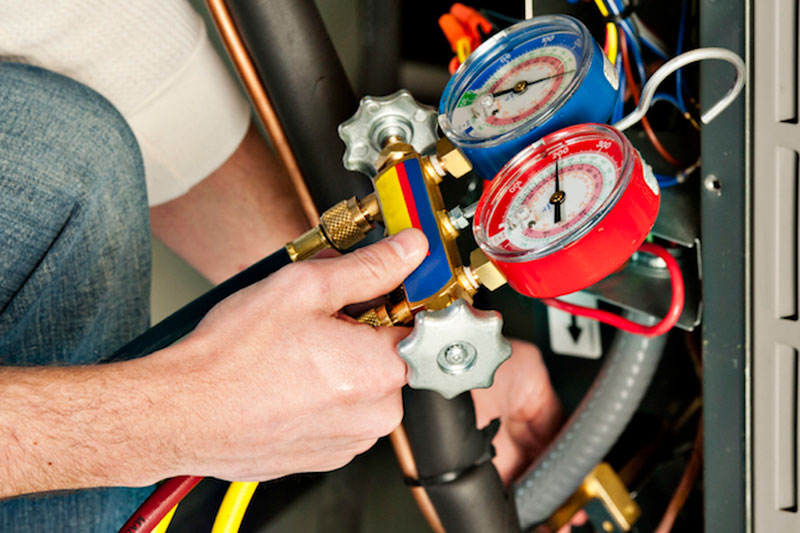
You might not think a lot about how your air conditioner works, but it needs refrigerant to keep your home cool. This refrigerant is subject to environmental regulation, since it contains chemicals.
Based on when your air conditioner was put in, it may use R-22, R-410A or R-32 refrigerant. We’ll go over the differences and which air conditioner refrigerants are being phased out in Newton, plus how these phaseouts impact you.
What’s R-22 and Why Is It No Longer Being Made?
If your air conditioner was added before 2010, it likely has Freon®. You can learn if your air conditioner contains it by calling us at 641-316-9803. You can also examine the name plate on your air conditioner condenser, which is situated outside your residence. This sticker will contain information on what model of refrigerant your AC has.
Freon, which is also referred to as R-22, contains chlorine. Scientists consider Freon to be damaging to the earth’s ozone layer and one that contributes to global warming. The Environmental Protection Agency, which manages refrigerants in the United States, outlawed its production and import in January 2020.
I Use an Air Conditioner with R-22. Do I Need to Get a New One?
It varies. If your air conditioning is running correctly, you can continue to run it. With yearly air conditioner maintenance, you can expect your air conditioning to operate around 15–20 years. However, the Department of Energy says that substituting a 10-year-old air conditioner could save you 20–40% on annual cooling costs!
If you don’t get a new air conditioner, it may create a problem if you require air conditioning repair down the road, specifically for refrigerant. Repairs could be higher-priced, because only limited quantities of recycled and reclaimed R-22 is available.
With the end of R-22, a lot of new air conditioners now have Puron®. Also called R-410A, this refrigerant was made to keep the ozone layer healthy. As it requires a different pressure level, it doesn’t work with air conditioners that use R-22 for cooling.
However, Puron still has the possibility to contribute to global warming. Because of that, it could also eventually be ended. Although it hasn’t been communicated yet for residential air conditioners, it’s likely sometime this decade.
What Refrigerant Will Take Over R-410A?
In preparation of the discontinuation, some brands have initiated using R-32 in new air conditioners. This refrigerant rates low for global warming possibility—around one-third less than R-410A. And it also lowers energy expenditure by about 10%, according to the Intergovernmental Panel on Climate Change’s Fourth Assessment Report. That’s savings that may be forwarded on to you through your cooling bills.
Brookwood Inc Can Help with All Your Air Conditioning Needs
In brief, the modifications to air conditioner refrigerant probably won’t concern you very much until you require repairs. But as we talked about beforehand, refrigerant repairs may be more expensive since there are the restricted amounts that are accessible.
In addition to that, your air conditioner typically stops working at the worst time, frequently on the hottest day when we’re getting lots of other appointments for AC repair.
If your air conditioner uses a phased out refrigerant or is more than 15 years old, we advise installing a modern, energy-efficient air conditioner. This ensures a hassle-free summer and can even reduce your cooling costs, especially if you choose an ENERGY STAR®-rated model. Plus, Brookwood Inc has many financing solutions to make your new air conditioner fit your budget. Contact us at 641-316-9803 to start now with a free estimate.


